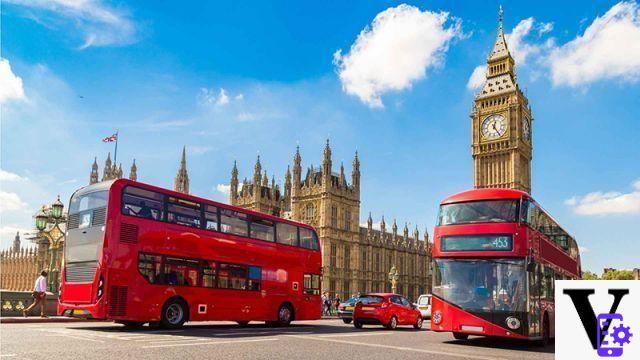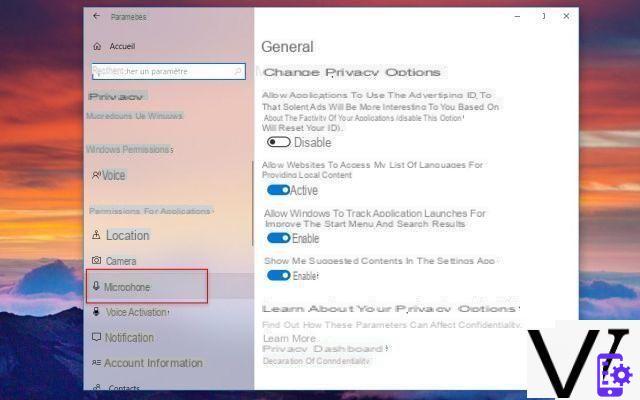How do they work online shopping after Brexit? In short, it will have happened to many of you of buy from the UK. Whether it was for a particularly favorable exchange rate of the pound, some brilliant offer from a British chain or simply because the UK market often offers a much wider variety of products, there are plenty of reasons to buy something on the other side of the Channel. With the spread of online commerce, everything has become easier and more accessible. Or at least, it was until now. The effects of the so-called Brexit in fact, they have come this far, with rather serious consequences for Italian (and more generally European) customers who buy from England.
How does online shopping work after Brexit?
 The historic Brexit vote has now been held in England several years ago. In fact, it was the year 2016 when the much discussed referendum was held, which saw 52% of the population choose to leave the European Union. In recent years, the institutions (and several British Prime Ministers) they carried out the negotiations to make this decision effective.
The historic Brexit vote has now been held in England several years ago. In fact, it was the year 2016 when the much discussed referendum was held, which saw 52% of the population choose to leave the European Union. In recent years, the institutions (and several British Prime Ministers) they carried out the negotiations to make this decision effective.
Leaving the European Union in fact, it's not a particularly easy decision to be implemented, especially after years of living together. It was necessary redefine a whole series of regulations and among these the circulation of commodities stands out clearly, which is what interests us. If before the goods went through customs in a substantially 'painless' way, now that the negotiations are finally concluded and the new measures are in force the matter is more complicated. In a nutshell, after Brexit, buy a good from England online it's not too different from one made in the United States or China.
The situation is still different if the asset originates from Northern Ireland, for which special measures have been put in place. For simplicity (and for greater frequency of cases) we will refer to the rules relating to England, Scotland and Wales in the article.
There are several variables to keep in mind. The first and most important is the value of the goods. If this is less than £ 135,00 (approximately € 150,00, but the exchange rate is of a variable nature) it will be necessary to pay VAT, calculated on the total price and shipping costs. Basically, if we buy a product for € 90,00 with € 10,00 by courier, our total after passing through customs could touch € 122,00.
What if we bought instead something more expensive, beyond the £ 135,00 threshold? Well, the situation becomes even more complicated, because you have to add the customs duties to the bill. These are an additional fee, the amount of which depends on the type of product. Each category of goods has in fact precise rules, which can be consulted on the customs websites. However, this is a percentage cost (often around 5%), which is in addition to the aforementioned one.
Then there is the so-called burden on the carrier. This is an additional cost (other than simple shipping costs) required by those who take care of the transport. Each company has its own rules about it, but in general they exist different brackets of value of the goods to which corresponding costs correspond. In general, they are not provided for the lower range, going up to € 10-15,00 for the higher ones.
Let's do some math ...
 Confused? Let's try to clarify the question of "shopping online after Brexit" with an example. You have found one PlayStation 5 on the website of a UK electronics store chain. Given how rare the console has become in recent weeks, you decide to buy it. It costs £ 449.99 which for simplicity we will convert to € 500,00 round round, plus € 10,00 shipping.
Confused? Let's try to clarify the question of "shopping online after Brexit" with an example. You have found one PlayStation 5 on the website of a UK electronics store chain. Given how rare the console has become in recent weeks, you decide to buy it. It costs £ 449.99 which for simplicity we will convert to € 500,00 round round, plus € 10,00 shipping.
The passage through customs will involve the addition of a duty of 4%, on the result of which the VAT at 22% will be calculated and finally the charges of the carrier (let's say € 5,00). The total will then be € 652,09, a good € 142,09 more than the starting price, which you will have to pay to the courier when he delivers the coveted package.
In all this then we have not taken into account a cost that is more difficult to quantify, but which undoubtedly has its impact: that of delivery times. If before Brexit, as we used to say, crossing the border of England was practically automatic, now this is no longer the case. The exit from the customs union involves the need to thorough checks. The application of the duty alone may require, for example, a verification of the actual belonging of the product to the declared category.
What does this mean? That if before a good could easily leave England and arrive in Italy in a short time, due to Brexit now these times will lengthen. And it is clear that this is not a negligible difference: we are talking about days and days of waiting that are added. And meanwhile you are there, in front of your TV, already with your hands warmed up ready to run them on the pad che fremete.
With Brexit, England pays the cost of going against the tide
 Beyond the jokes, it is clear that the consequences of Brexit for England and its economy go far beyond the world of video games. Because if basically if a console is delivered in two or seven days, the damage it's not that bad. If instead we talk about perishable goods, such as food or flowers, the situation is different. A too long wait at customs will ruin them, making them lose their value, or incur extra expenses to ensure their preservation.
Beyond the jokes, it is clear that the consequences of Brexit for England and its economy go far beyond the world of video games. Because if basically if a console is delivered in two or seven days, the damage it's not that bad. If instead we talk about perishable goods, such as food or flowers, the situation is different. A too long wait at customs will ruin them, making them lose their value, or incur extra expenses to ensure their preservation.
These (and many others) are the costs the UK pays for its choice to go against the tide. Brexit is in fact a process that goes in the opposite direction to that which, more or less actively, the rest of the world is taking.
Technology and progress have made it possible reduce distances and now there are more and more relations between countries. National borders are becoming more blurred and we have access to different cultures, we come into contact with realities of all kinds and this also has obvious repercussions on the economy.
What England did with Brexit it is not a simple attempt to slow down this process of approaching, but of go against it. A decision that could be told in different ways before the vote and that still today can be seen as reckless or dictated by a desire for freedom and self-affirmation.
In short, a 50 and 50, a bit like throwing a penny in the air (and almost the percentages of the referendum). But which way will the coin fall? Sara only the experimental test to give an answer. Now the coin is in the air and is spinning in on itself. Perhaps he has already passed the pinnacle of his flight e is returning to the ground, ready to show the outcome of the launch, maybe not.
And while making a prediction in these turbulent times is difficult, one wonders how much European customers do they will be willing to endure to pay large and difficult to quantify overcharges upon purchase as well as extended delivery times. And how long it will take big UK companies to transfer their offices central on the Continent? Perhaps more importantly, how long will it take before European Union realities take advantage of the opportunity for replace the British ones?
The coin is in the air, you just have to wait.
Tagsbuy Brexit UK online Beware of purchases from the UK: now you pay customs duties and charges


























